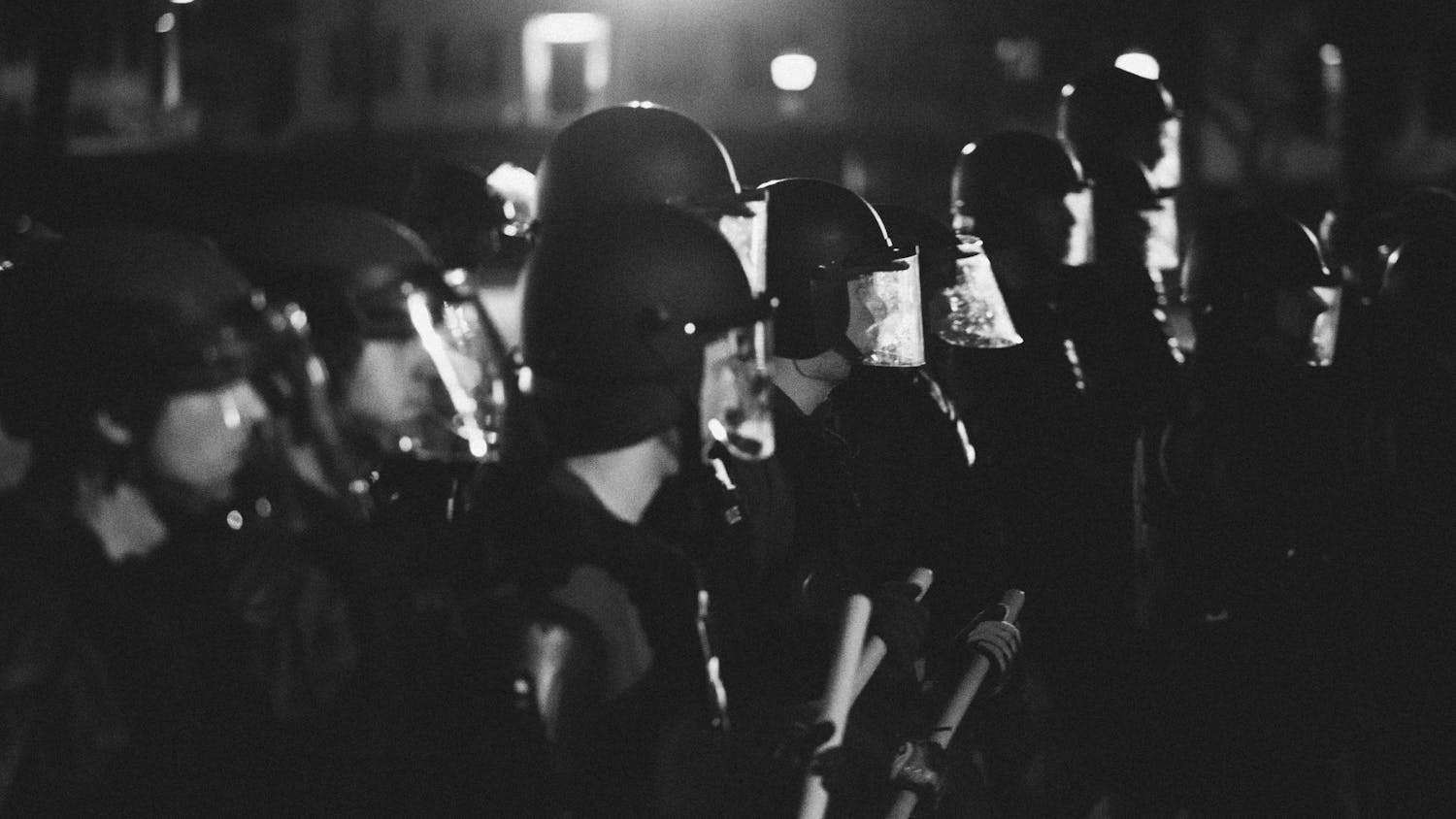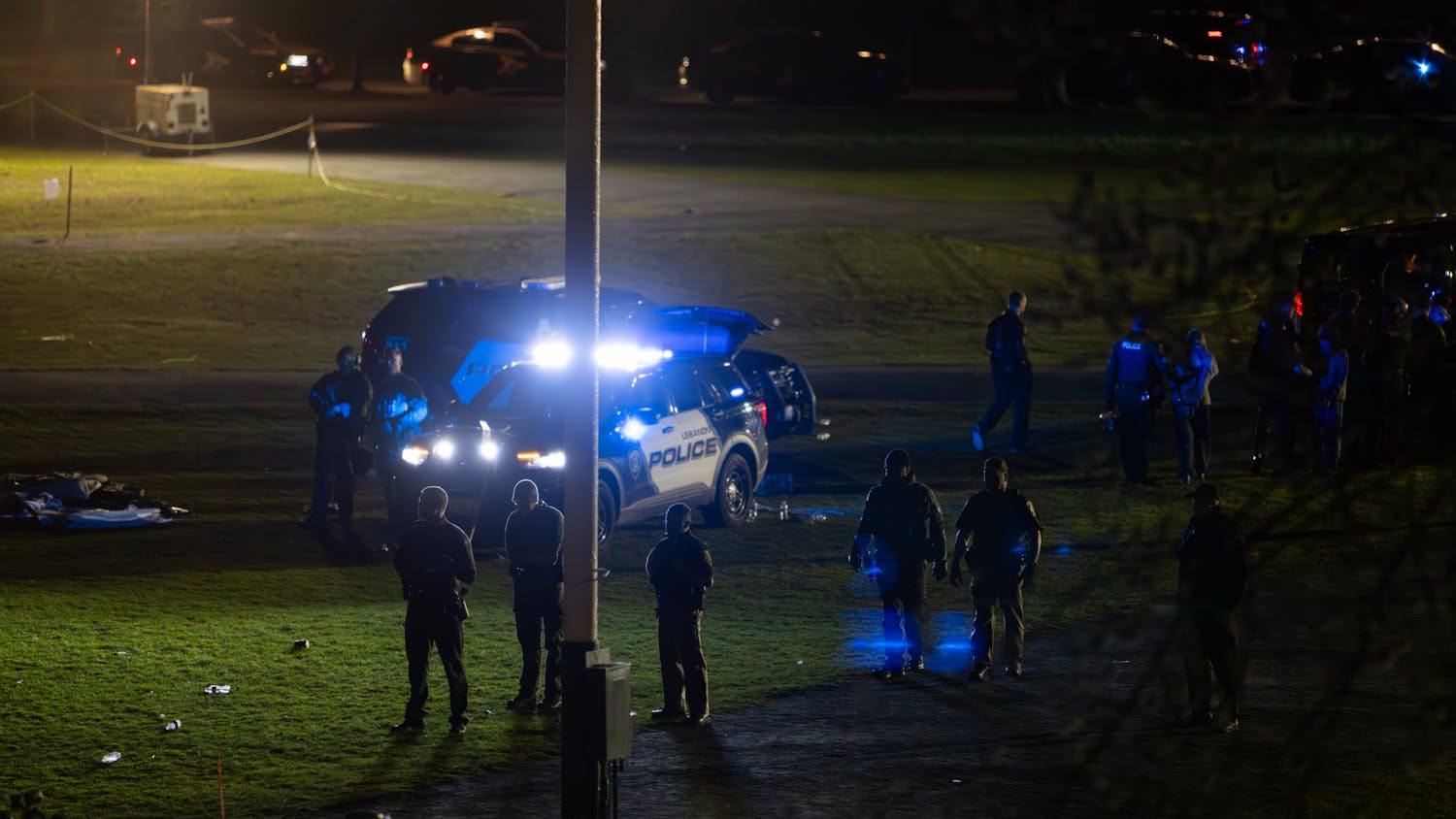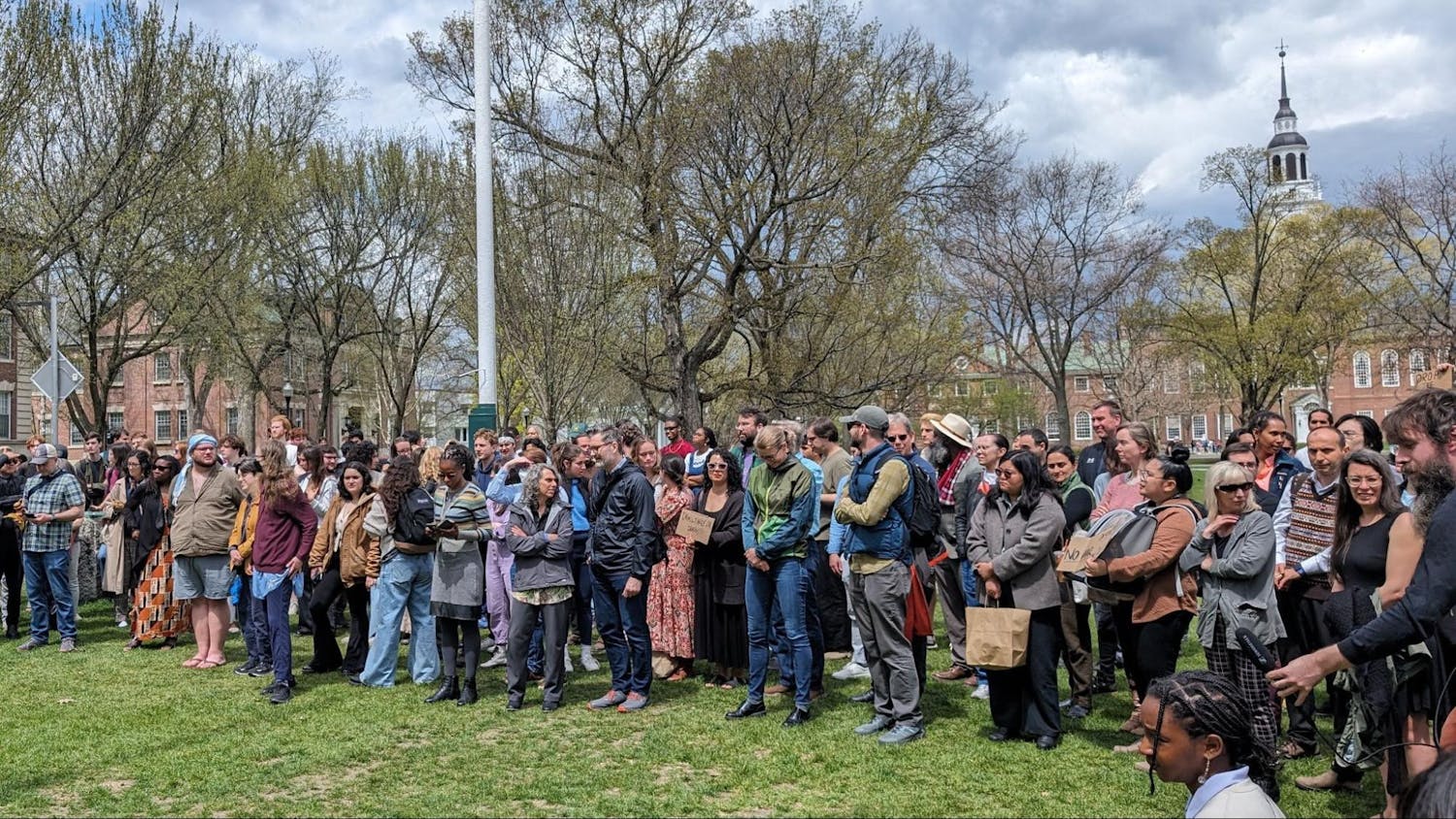Today's hearings for Robert Tulloch and James Parker have brought some semblance of closure for many of those in the Dartmouth community affected by the brutal murders of Professors Half and Suzanne Zantop.
"I don't take any comfort or relief from this. I'm just glad that it's behind us," College President James Wright said. "I want to think about their lives, what they did, what they meant to this community. That is the more positive, inspiring thing to do."
Many said they were relieved by Tulloch's decision to plead guilty at the hearing, which bypassed a possibly lengthy trial that would have been difficult for the families and friends of the victims and murderers.
"The facts that are now known have made it fairly clear. It's hard to say what purpose may have been served by the trial," Dean of the College James Larimore said.
Tulloch received two life sentences without parole -- the mandatory sentences for two counts of first-degree murder he faced -- while Parker plea bargain led to his sentence of serve 25 years to life in prison.
Former Dean of the Faculty Edward Berger said Tulloch's sentence was "appropriate. That kid is obviously psychotic." Provost Barry Scherr said the length of each sentence proved that justice had been served.
"I don't know how you determine justice for the loss of friends and colleagues like this," Wright said. "I think the police and attorneys have done an effective job at bringing this to a resolution."
While the hearing legally concluded the case, the wounds inflicted by Parker and Tulloch have yet to heal for those close to the Zantops.
"My sense is that you never quite get over something like this entirely, but now it won't be in the news as much anymore, and I think it will be easier for people to move on," Scherr said.
"I honestly don't think there is any way to make this easier. Now that people have been identified and found, we can focus our energy on helping and caring for each other," Larimore said.
Nearly all Dartmouth students contacted believed that foregoing trial and pleading guilty was far better than a lengthy trial.
"There is no guarantee that the truth would have come out in the trial anyway ... and I don't even want to hear it," Jan Wellford '03 said.
Conversely, some felt that a trial might have clarified many of the questions surrounding Parker and Tulloch's seemingly unfathomable motives.
"I think it would have helped the community more with a trial," Christina Richardson '03 said. "Everyone wants to think that tragedy happens for a reason -- by pleading guilty [the murder] seems more unnecessary."
Parker's former attorney, John Pacht, said that although Parker was clearly regretful at the hearing, he could not gauge Tulloch's level of remorse.
"With respect to Jimmy Parker [the sentence] was something that was considered long and hard by both the prosecution and the defense, and was accepted by them and hopefully by the family," Pacht said.
Tulloch's anomalous decision to plead guilty and endure a mandatory life sentence is "an extraordinarily heavy burden to bear at such a young age," Pacht said.



